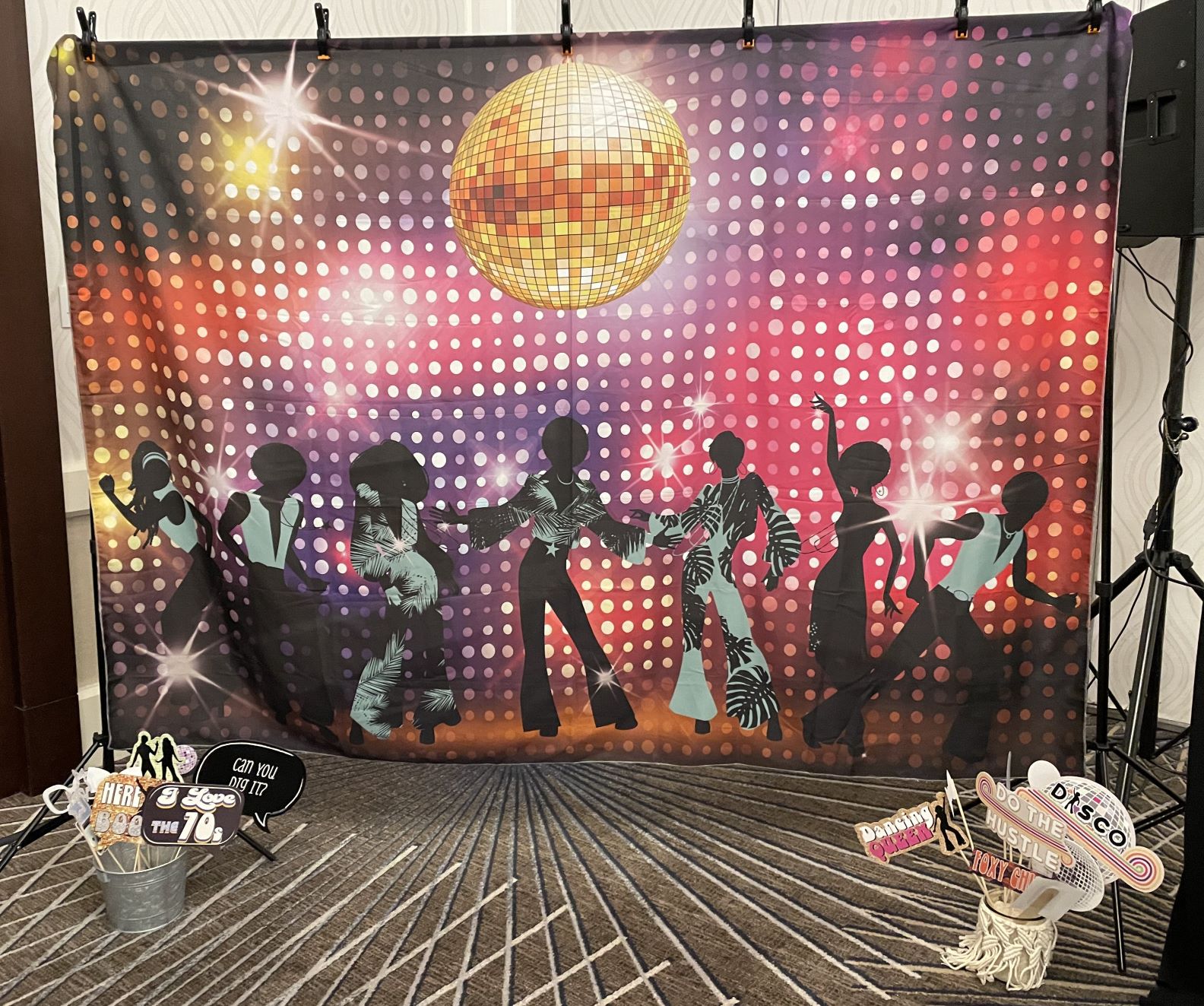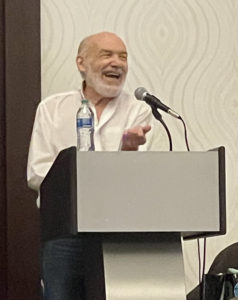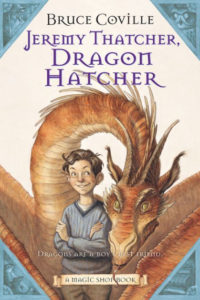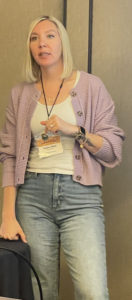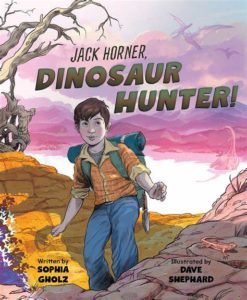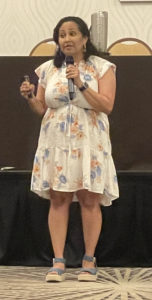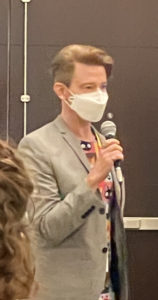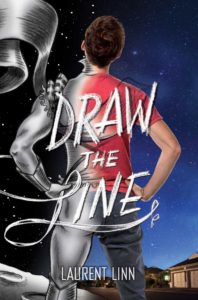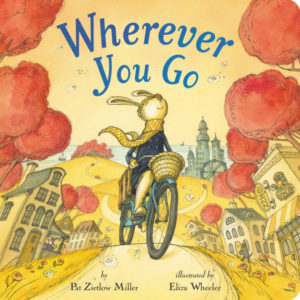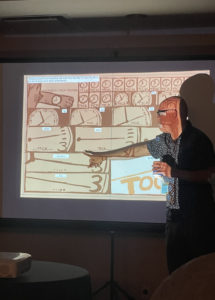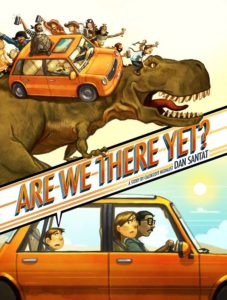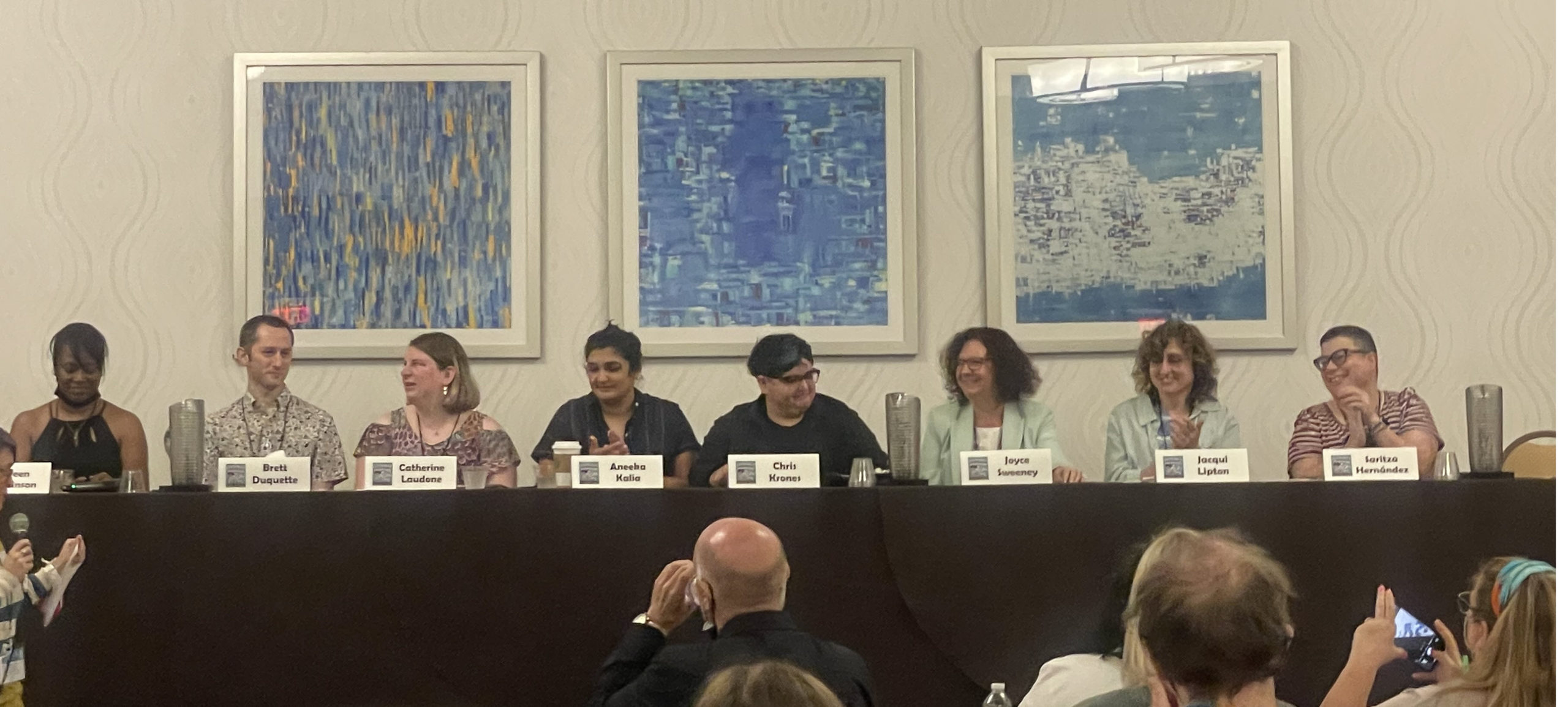I gave a recap of the 2022 FL SCBWI conference last year and people liked it so much that I figured I’d try it again this time around. I’ll include a few snapshots, too, of this year’s event which happened earlier this month at the Embassy Suites in Ft. Lauderdale.
But make no mistake–reading about a conference is never the same as being there. If you like what you’re seeing below, plan to attend an event live when you can!

**Everything listed here came directly from my scribbled notes. Any mistakes or misunderstandings are likely mine. If you’re one of the folks I quoted below and you’d like me to amend my quote, please just let me know!**
Karen Grencik, Literary Agent and Co-founder of Red Fox Literary
“Be the kind of person others want to work with. Those are the people that really do find success.”
Carter Hasegawa, Editor at Candlewick Press
“Mine your personal history. Fight for originality. Disrupt expectations.”
Winsome Bingham, Acquisitions Editor at Reycraft and Author of Soul Food Sunday
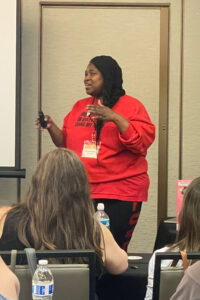 “When we think about pacing, it’s the movement of the story, and the speed at which your story moves on the page. I always tell people that, for me, as a math person, pacing is mathematical as well as musical. Because when you’re thinking about pacing, you’re doing a lot of counting, you’re counting spreads, you’re counting beats.”
“When we think about pacing, it’s the movement of the story, and the speed at which your story moves on the page. I always tell people that, for me, as a math person, pacing is mathematical as well as musical. Because when you’re thinking about pacing, you’re doing a lot of counting, you’re counting spreads, you’re counting beats.”
“There’s a reason why dream is a noun and a verb. It is because you can do it. And you can also think about it as a tangible object of goals, something to get to. But it doesn’t really happen when you’re asleep. You can MAKE it happen.”
Leah Henderson, Author of The Magic in Changing Your Stars
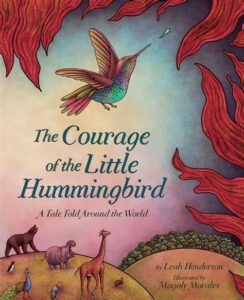 “I had to take a step back. And I had to say, first and foremost, we need to protect ourselves. We need to make sure that we are okay so that we can tell the stories that we really want to tell. So, for about a year and a half, I walked away from writing. And it was this thing where I was like, the thing that I love isn’t loving me back right now. So, I need to go find other ways to fill my well. At the beginning, it was not easy. I felt very guilty. And I did try to keep writing, but it just was not working. So, I said just take the time away. That’s what I did.”
“I had to take a step back. And I had to say, first and foremost, we need to protect ourselves. We need to make sure that we are okay so that we can tell the stories that we really want to tell. So, for about a year and a half, I walked away from writing. And it was this thing where I was like, the thing that I love isn’t loving me back right now. So, I need to go find other ways to fill my well. At the beginning, it was not easy. I felt very guilty. And I did try to keep writing, but it just was not working. So, I said just take the time away. That’s what I did.”
“Just lean into who you are, as a person. There is something about each and every one of us–there are probably more than one somethings about each and every one of us–that is, at the core, something a kid needs to hear, or needs to see, or needs to understand about someone else on this planet.”
Marcie Colleen, Author of Penguinaut!
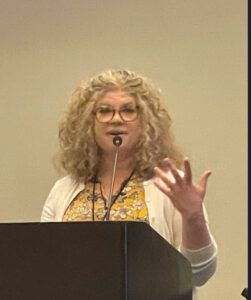 “I often say that kidlit is the one place I have found where a stranger really is a friend you haven’t met yet.”
“I often say that kidlit is the one place I have found where a stranger really is a friend you haven’t met yet.”
“It’s all about forward motion. When faced with the challenge of running 26.2 miles, the thing you absolutely don’t want to do is stand still or turn around and run in the wrong direction. Even if you must walk, even if you must skip or dance or limp, it’s all about forward motion. I think it’s the same in writing and illustrating. We set our sights on a goal such as completing a book or a portfolio, or getting to a certain milestone in our career. Progress is progress no matter how slow.”
“Run the first third with your head–that’s your craft. Run the second third with your legs–that’s everything you’re capable of doing that you’re putting into action. Run the final third with your heart.”
Debbie Ridpath Ohi, Author and Illustrator of Where Are My Books?
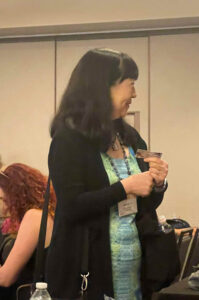 “Your mental health needs to come first. Remember that even if you feel like nothing is happening in your career, no matter what you try, do not lose hope. Be kind to yourself. And that’s so, so important because I think we were all really tough on ourselves. And we all push ourselves so much, which is good sometimes. But try not to compare your own path to that of other people who may not being going through the stresses and challenges you face. I cannot emphasize that enough. Be kind to yourself.”
“Your mental health needs to come first. Remember that even if you feel like nothing is happening in your career, no matter what you try, do not lose hope. Be kind to yourself. And that’s so, so important because I think we were all really tough on ourselves. And we all push ourselves so much, which is good sometimes. But try not to compare your own path to that of other people who may not being going through the stresses and challenges you face. I cannot emphasize that enough. Be kind to yourself.”
Liz Garton Scanlon, Author of All the World
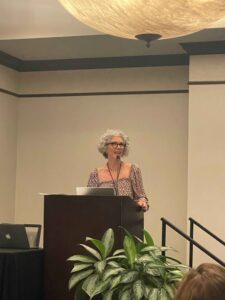 “What is important to know is that metaphors go way beyond that kind of decoration, or window dressing. They step us outside of the daily flow of prose that we use regularly and slow us down and emphasize that which they’re describing, worth pointing out. So they’re decoration, but they’re also emphasis.”
“What is important to know is that metaphors go way beyond that kind of decoration, or window dressing. They step us outside of the daily flow of prose that we use regularly and slow us down and emphasize that which they’re describing, worth pointing out. So they’re decoration, but they’re also emphasis.”
“That’s the biggest and most important takeaway when we’re talking about metaphor–trying not to find the tools that match exactly. Our job is just to focus on that intersection…so, if we’re going to compare, for example, anger to coffee, they can be really dissimilar in almost every way. One exists in your chest or head, the other comes in a cup. One might be the result of the national news or a fight with your spouse, the other comes from roasted grounds. One results in traffic tickets or jail time, the other tastes good and can help your performance on tests. But both are hot and prone to boiling over. Both can burn. And that one intersection is all you need.”
Matt de la Peña, Author of Last Stop on Market Street
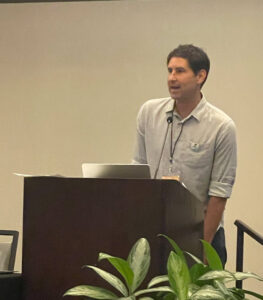 “Crowds will one day swarm to your ideas and they will look to you for guidance, eager to follow, and they will follow. You are more than a single note played again and again. You are a symphony. You are sounds plucked from all the places you’ve been and all the people you’ve met and all the feelings you felt. You are blues and pinks and loneliness and laughter, mismatched scraps accumulated over time and stitched together into a kind of patchwork. And even when your pattern loses its design, when it grows lopsided, or tangled, or is hard to follow, it will be beautiful. We, writers, are beautiful.”
“Crowds will one day swarm to your ideas and they will look to you for guidance, eager to follow, and they will follow. You are more than a single note played again and again. You are a symphony. You are sounds plucked from all the places you’ve been and all the people you’ve met and all the feelings you felt. You are blues and pinks and loneliness and laughter, mismatched scraps accumulated over time and stitched together into a kind of patchwork. And even when your pattern loses its design, when it grows lopsided, or tangled, or is hard to follow, it will be beautiful. We, writers, are beautiful.”
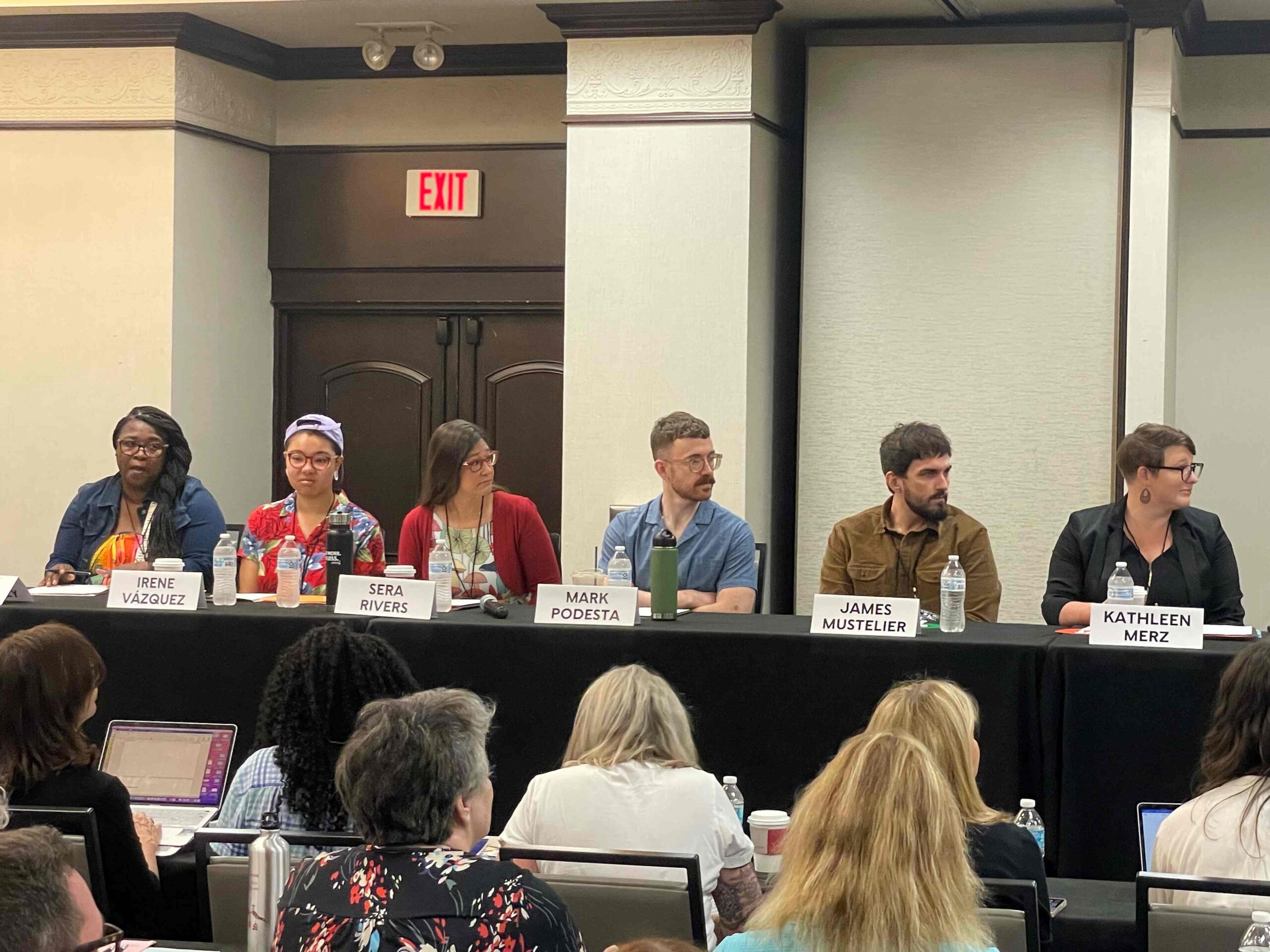
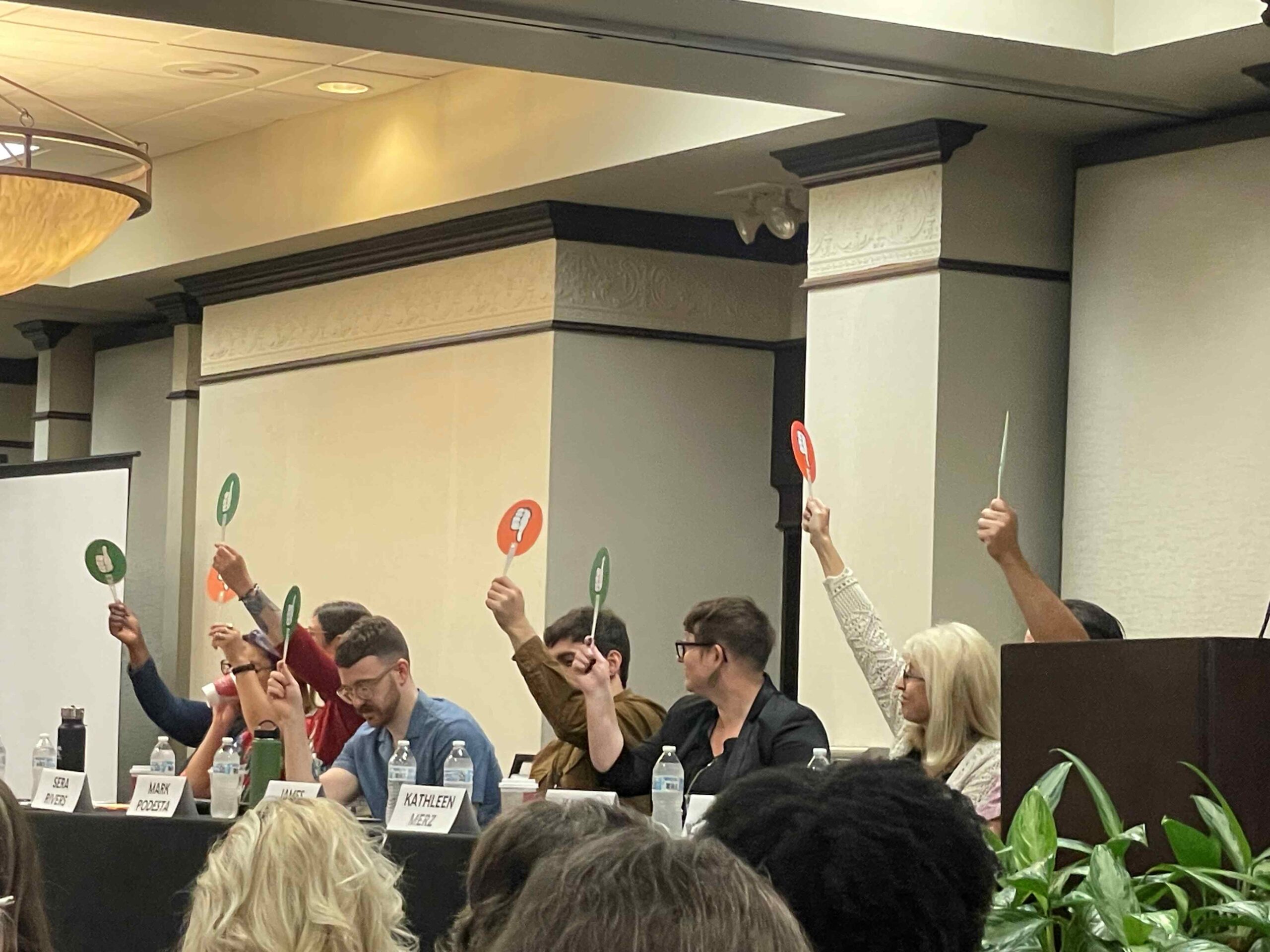


 Normally, the third Monday of the month means an Industry Insider Interview, which is me doing a deep dive into the career of a single editor, agent, or other picture book industry person. But since I just got back from the rousing success that was the May 2022
Normally, the third Monday of the month means an Industry Insider Interview, which is me doing a deep dive into the career of a single editor, agent, or other picture book industry person. But since I just got back from the rousing success that was the May 2022 